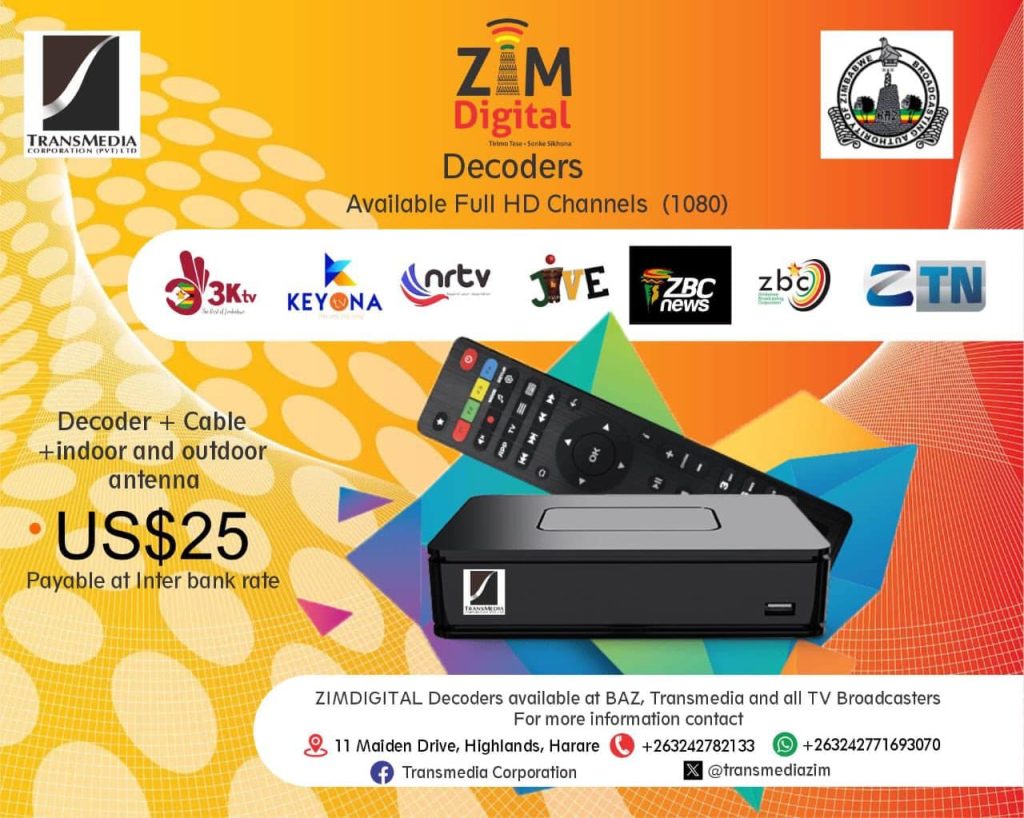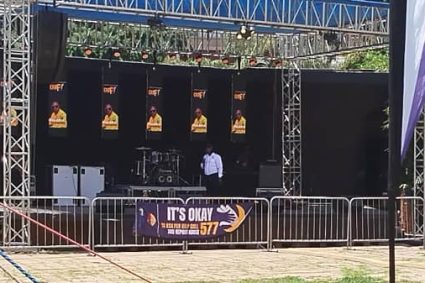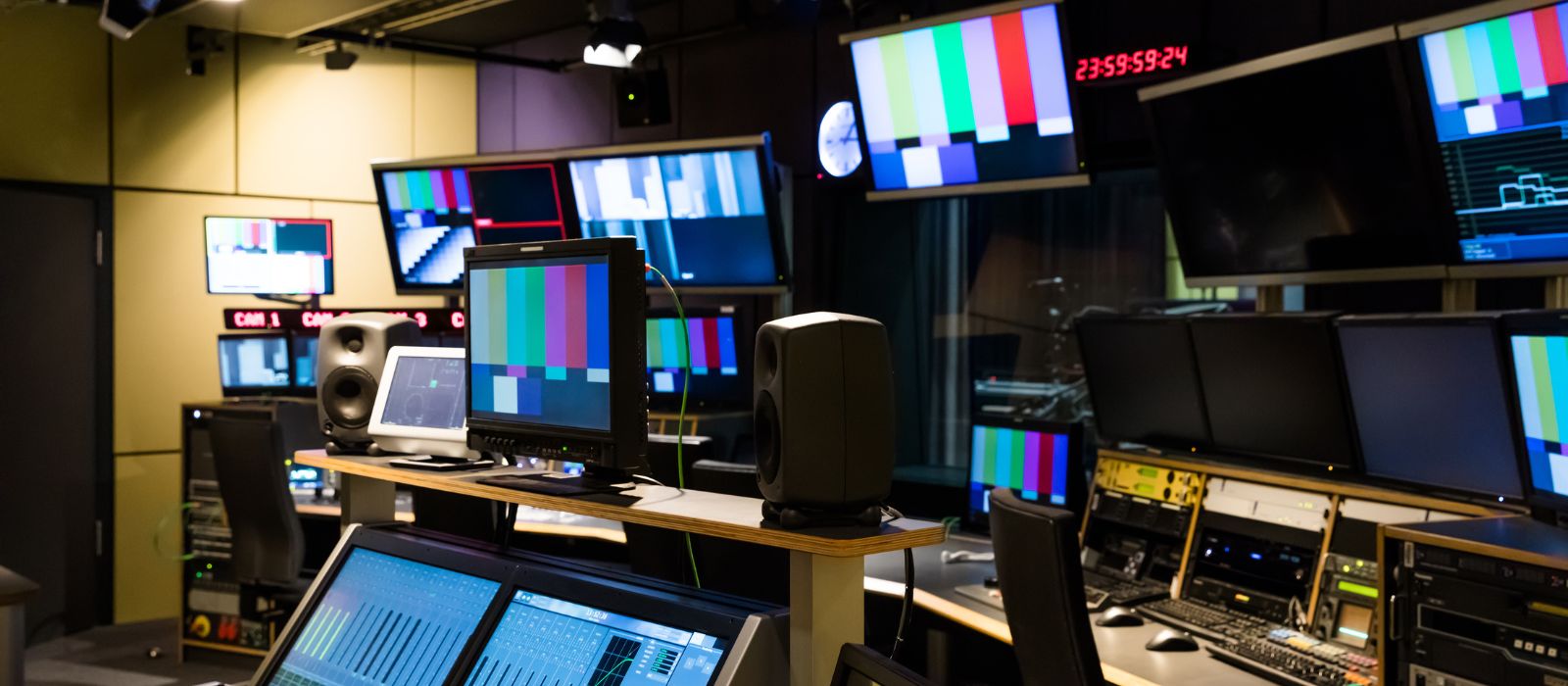
OPINION By Nico Abote: I could easily write an entire book on this topic, but in these few words, I hope we can start to embrace the incredible opportunities we have to create, celebrate, and consume more of our own content.
For far too long, the Zimbabwe Broadcasting Corporation (ZBC) held a monopoly over the airwaves, controlling much of what was produced and broadcast on the public channel, resulting in many viewers losing hope. Even with the introduction of new channels, the situation did not improve immediately, and DSTV stepped in to fill the gap (remember Kwese? Let us leave that for another time, lol). Unfortunately, this shift left us without the chance to promote local productions, create jobs, and foster a dynamic creative community, unlike our neighbors in South Africa or even Zambia.
Why We Need More TV Channels in Zimbabwe
Unlocking Opportunities with the Digital Decoder: The introduction of the digital decoder, though sometimes seen as expensive, presents incredible opportunities for Zimbabwe’s digital future. This device will not only support the current seven channels but also enable the addition of more channels and apps, granting access to content from Zimbabwe, Africa, and the rest of the world. For instance, many churches produce substantial amounts of content that could easily become part of a new bouquet option. Furthermore, radio stations can be migrated to the decoder, improving accessibility across the country.
This shift will encourage broadcasters to create more interactive programming and adopt modern broadcast standards that align with the future of television, especially in terms of on-demand access.
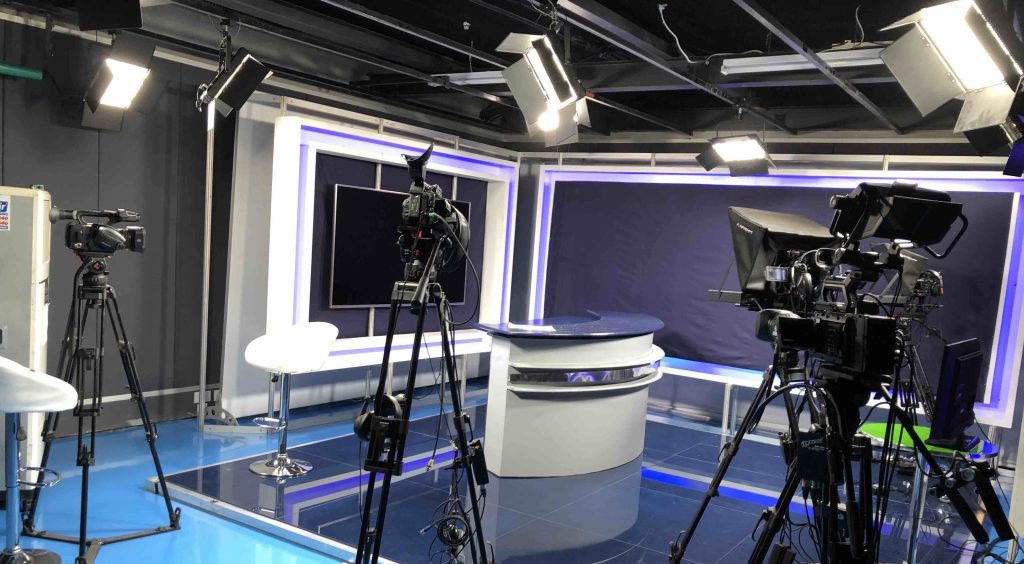
My time at Zimpapers TV Network (ZTN) was driven by the desire to establish a world-class broadcast facility that aligns with international standards. While we are still catching up, ZTN studios are arguably the best among the new channels.
Without hesitation or bias, we must invest in digital boxes (preferably at more affordable prices) to prepare Zimbabwe for its digital future.
The benefits of consuming local content are vast, and we cannot afford to overlook that. Zimbabwe should have been leading in this space by now; unfortunately, we are playing catch-up. Some of the advantages of having multiple TV channels include:
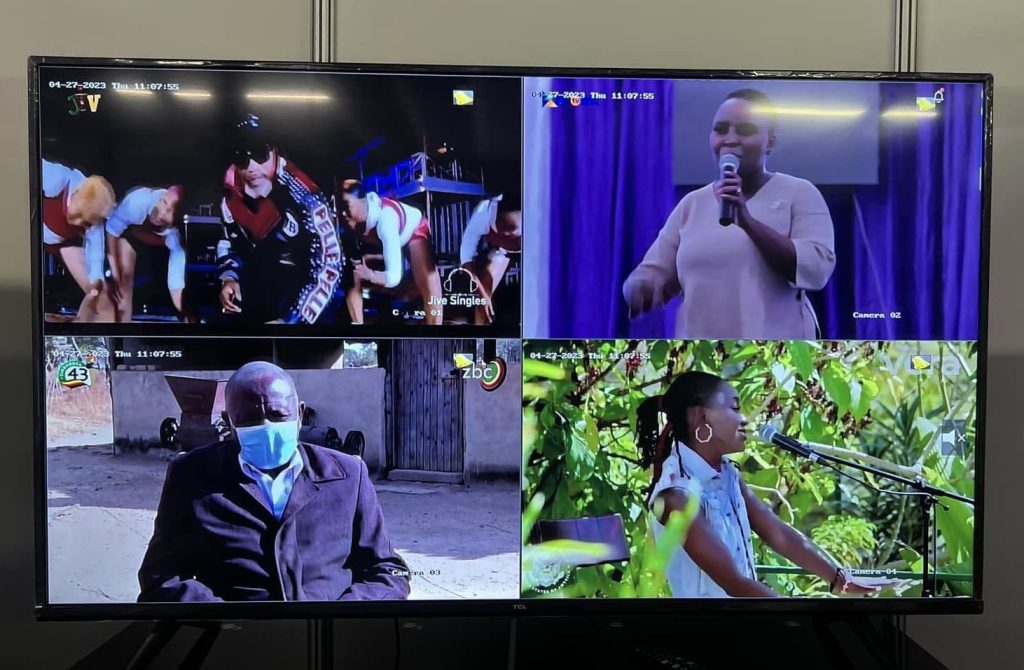
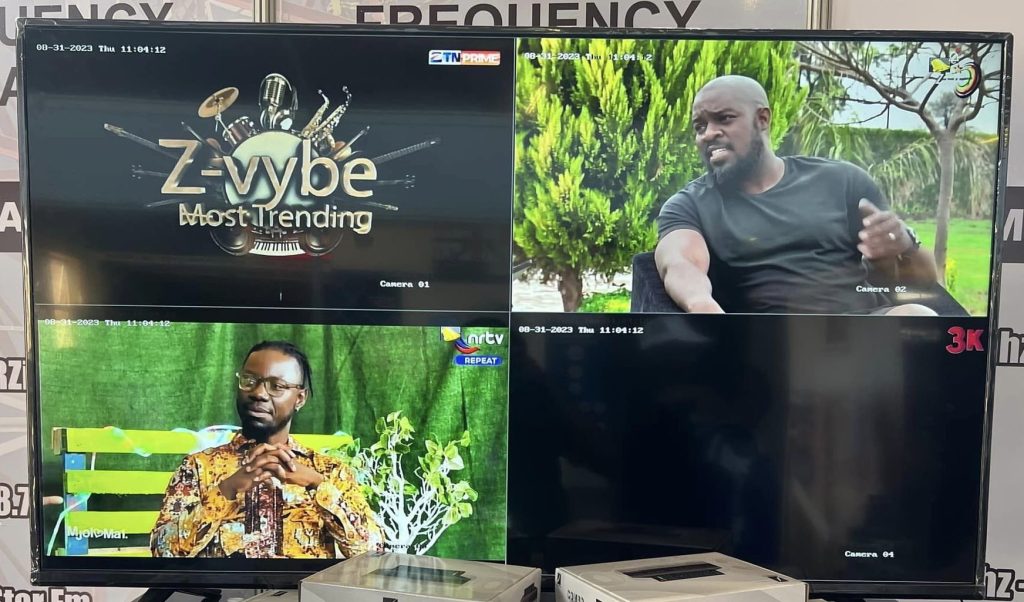
Diverse Content: More channels mean a broader range of content, catering to various tastes and interests, while reducing reliance on foreign programming.
Job Creation: A thriving media industry generates jobs for actors, directors, writers, technicians, and many others across the creative spectrum.
Cultural Representation: Additional channels can highlight Zimbabwean culture, traditions, and stories, fostering national pride and unity.
Economic Growth: A vibrant media industry attracts investment, boosts tourism, and stimulates growth in other sectors of the economy.
Educational Opportunities: More channels can offer educational content, enhancing literacy and learning for viewers of all ages.
With this Digital Box/Decoder, so much more can be achieved, opening up a future full of possibilities. For instance:
– Terrestrial Television (Over-the-Air): This traditional method of television broadcasting transmits signals via radio waves from a terrestrial transmitter to a TV receiver equipped with an antenna. It offers access to local channels for free, without the need for a cable or satellite subscription. I believe this is why the purchase cost seems ‘high’ because it is a one-time investment (though I stand to be corrected).
– Streaming Services, which have recently gained immense popularity and are undoubtedly the future: Platforms like Play Afrika TV, TV Yako, Netflix, Showmax, and YouTube provide on-demand access to an extensive library of movies, series, and user-generated content via the internet. However, we would need internet service providers to improve access to fully capitalize on these opportunities!
– Satellite TV: Similar to DSTV, but locally owned and operated.
– Internet Protocol Television (IPTV): Delivers TV content through internet connections, offering on-demand and live TV services with interactive features.
– Cable TV: Provides a wide array of channels through a cable connection, offering diverse content such as news, sports, movies, and local programming. While the setup is costly, it is more stable than satellite connectivity.
Supporting local content producers is crucial for several reasons, and I will list a few below. But do we all remember the ‘Sisonke’ drive by the Information Minister, Prof. Jonathan Moyo? It connected with many of us and we began to appreciate and love more of our own content. I firmly believe that if all the necessary infrastructure had been in place, many of our artists, especially in music, would be far ahead today, enjoying better livelihoods.
Economic Empowerment: Investing in local productions keeps money circulating within the country, supporting local businesses and boosting the economy.
Talent Development: Promoting local content creation nurtures home-grown talent, offering platforms for individuals to showcase their skills and grow professionally.
Cultural Preservation: Local content plays a vital role in preserving and promoting Zimbabwean culture, ensuring that our stories and traditions are passed down through future generations.
Community Engagement: Local productions often connect more deeply with viewers, fostering a sense of community and shared identity.
Innovation and Creativity: Supporting local content fuels innovation and creativity, leading to diverse and unique programming that reflects the richness of our society.
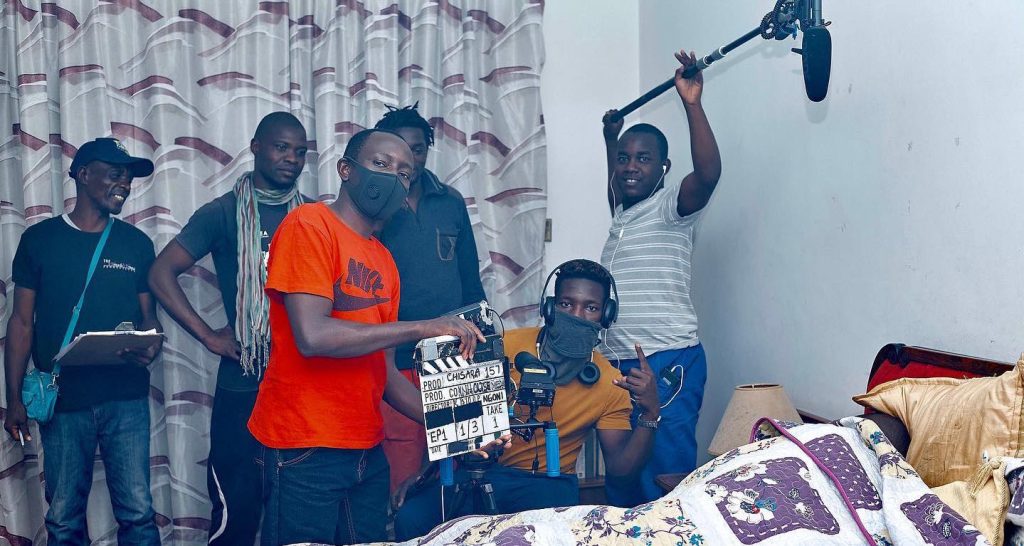
In conclusion, by embracing these opportunities, Zimbabwe has the potential to lead in local content creation, bringing immense benefits to our economy, culture, and communities. My hope is that Transmedia Corporation, along with Ministry of Sport, Recreation, Arts and Culture representatives like Nicholas Moyo and others, will champion a stronger narrative to drive the acceptance of these digital boxes, ensuring more homes have access to our local channels.
Here’s to the future, and I’m ready for it!!!
Nico Abote is a broadcast media specialist with over 20 years of experience in film, television, and multimedia production. He is currently the Director of the Broadcast Division at Western Standard, a leading online news and opinion platform in West Canada. He oversees the operations, employees, and contractors of the division and ensures the production and publication of high-quality video and podcast content for the Western Standard and its social media and podcast channels. Content is also distributed to three major broadcast channels across Canada. Nico has a diverse skill set and a creative flair in content creation tailored to different audiences and platforms. He has been involved in several film and TV projects in Canada and across Africa, including the award-winning feature drama Jasmine Road Film among other productions. He is also a reality TV series director (Dance Match-Maker) currently in pre-production. He also co-founded Play Afrika TV, an innovative online platform that empowers African creatives. He holds certifications in digital marketing, set etiquette and protocol, TV news production, and TV station programming. Nico is passionate about using media and entertainment as a tool for social change and empowerment.

